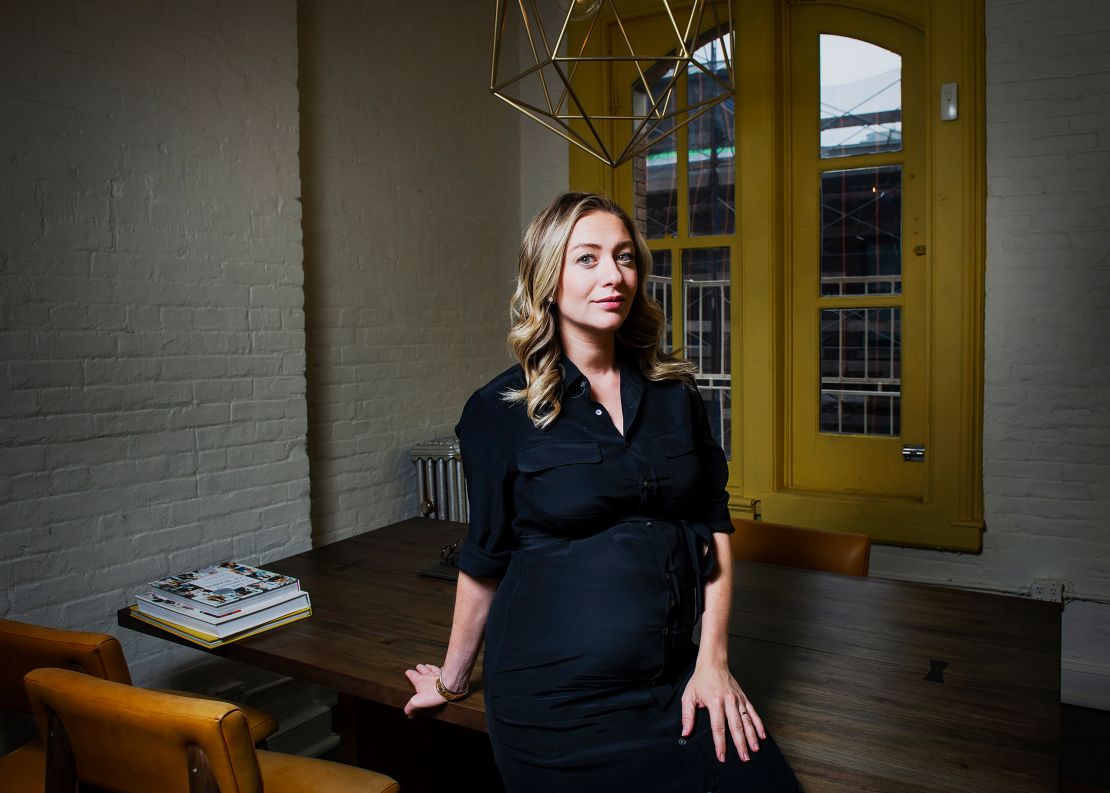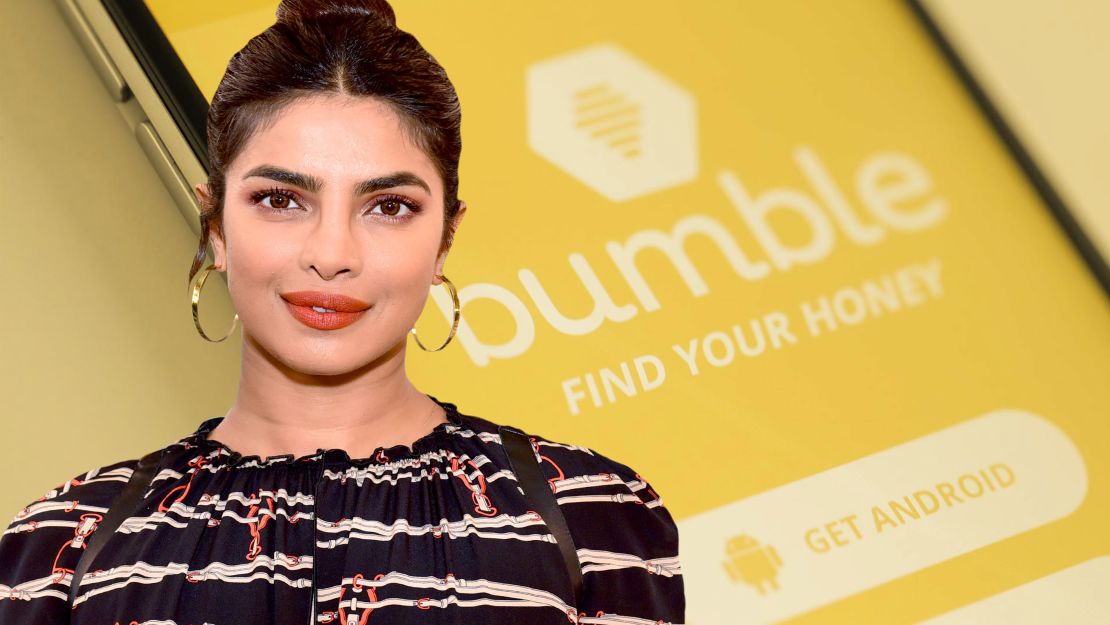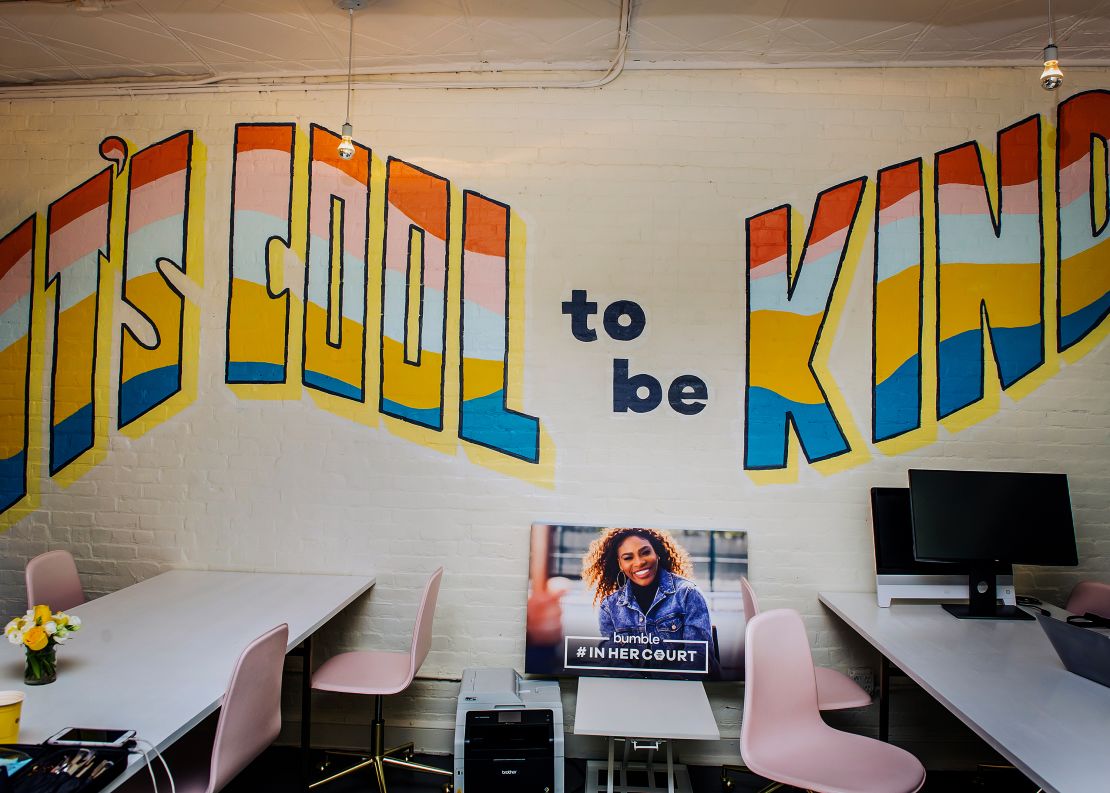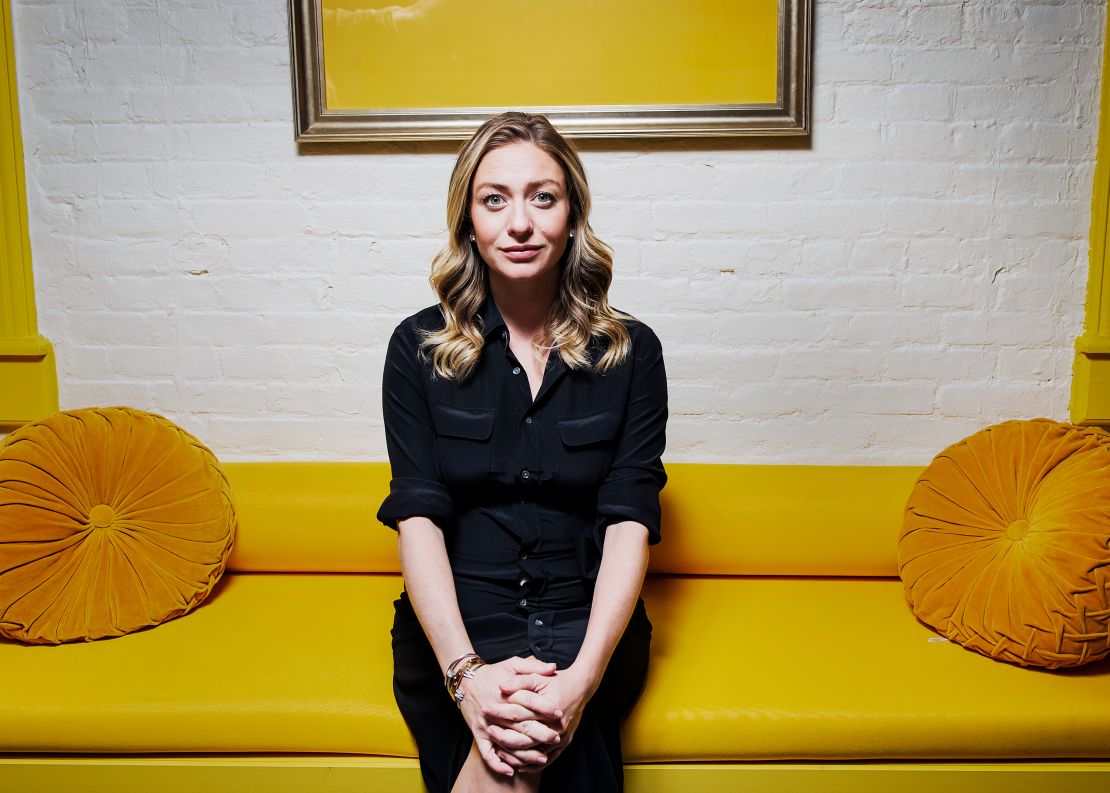Bumble founder Whitney Wolfe Herd is used to bucking traditions.
When she launched the female-focused dating app in 2014, which requires women searching for heterosexual matches to make the first move, some were skeptical it would take off. But Wolfe Herd’s vision — that the app actually would empower women to make their own choices, rather than burden them with it — caught on. Bumble has become a household name and has grown to include services beyond dating, including professional networking and finding new friends.
Last year, Wolfe Herd made a strategic decision to push Bumble into India, a risky move given that casual dating is a relatively new and urban phenomenon and that India has one of the highest rates of sexual violence in the world. Still, Wolfe Herd didn’t shy away.

“We need to go where we’re needed the most,” Wolfe Herd said in an interview with CNN Business in September. “The most traditional, the most misogynistic mindsets globally — those markets for us are completely wide-open prairies,” she said, referring to the decision to launch in India. “Just because something is not as progressive as another place in the world doesn’t mean there’s not a desire for that.”
Now, Wolfe Herd is preparing for one of her biggest challenges yet: Taking over the CEO seat of Bumble’s parent company MagicLab four months after former owner Andrey Andreev was accused of racism and sexism, allegations that he has denied. Investment firm Blackstone bought the company from the Russian billionaire last month, in a deal that valued it at $3 billion.
Related: See the 20 Risk Takers pushing global business forward
At just 30, Wolfe Herd sits at the helm of a dating empire that claims it has more than 500 million global users across its four apps: Bumble, Badoo, Chappy and Lumen. When she returns from maternity leave in the spring after having her first baby, she will continue forging ahead with Bumble’s international expansion. On a broader scale, she plans to use her platform to advocate for legislation outlawing digital sexual harassment both domestically and internationally. On top of this, she’ll also have to address the findings of a still-ongoing investigation into the culture at Badoo.
An ongoing investigation
Andreev and Wolfe Herd had been business partners since Bumble launched in 2014 in Austin, Texas. Wolfe Herd, who started her career at Tinder, initially wanted to create a women-focused social network; Andreev suggested creating a dating app with a similar vision. His company, Badoo, helped provide the infrastructure, and he became her primary backer.
In July, Forbes reported on allegations of a sexist and toxic culture at Badoo headquarters in London, citing interviews with 13 former employees. The report included claims — some of which date back to 2011 and 2012 — that Andreev made racist and sexist comments to staffers, as well as broader claims of a toxic work environment.
The company initially slammed the report, but two days later, Andreev issued a statement at the time saying he was “shocked and saddened by the allegations,” though he maintained that “many of the accusations are inaccurate.”
The allegations immediately put Wolfe Herd in a difficult spot. Andreev had been a longtime mentor and friend, but the allegations against him were serious and went against everything Bumble stood for. Would she stand by him? In the initial Forbes article, she did: She was described as standing “firmly behind” Andreev, who she said was “my family and one of my best friends.”
Wolfe Herd issued a statement after the article came out, saying she was “mortified by the allegations,” and that she “learned of the majority of these allegations at the same time as the public.” She added that although she had “never seen or heard” any of the behavior in question, “I would never challenge someone’s feelings or experiences.”

Badoo hired a firm to conduct an outside investigation into the allegations in the Forbes article and committed to making those findings public and implementing the recommendations. The investigation is ongoing, but Andreev sold his majority stake in the company as part of the Blackstone deal in November.
Taking leaps of faith in India
Just a few months before Bumble launched in India last year, the Thomson Reuters Foundation surveyed more than 500 experts on women’s issues, and concluded that India was the most dangerous country in the world for women due to factors like sexual violence against women and cultural traditions impacting women’s safety.Wolfe Herd, however, saw an opportunity to empower women in the country. If successful, it would be a huge business win.
While other US-based dating apps already existed in the region, including Tinder, Hinge and OkCupid, there was arguably more at stake for Bumble. The company’s differentiating factor lies in empowering women to initiate contact. Would Bumble be putting its female users at risk?
Bumble took new, local safety precautions, like the ability for women to only display a first initial, rather than a full name, in addition to global features such as photo verification.
Wolfe Herd said the first initial feature is only available for women on the platform. “We need to hold people accountable. The less anonymity given to the other side of the table is actually a great way to reduce friction, harassment and abuse,” she said.
The Indian version of the app is available in both Hindi and Hinglish — a hybrid between Hindi and English that’s popular — on iOS and Android.
Bumble leaned on support from actress Priyanka Chopra, who was named an adviser and investor in the startup last October, and Chopra’s manager, Anjula Acharia, also a Bumble investor and adviser, who has a history of helping artists like Lady Gaga launch in the country.

For the better part of a year, the company prepared for its India launch. “We really listened to the women of India. We surveyed, we did focus groups,” Wolfe Herd said.
One 30-year-old Indian user named Ankita, who has used various online dating apps, said some of her friends “appreciate their names are being kept a secret” on Bumble due to stalking concerns. (India made it a criminal offense in 2013, but enforcement of the law is inconsistent.) But, Ankita said, there are still broader cultural shifts that need to be accounted for, such as, “a lot of men don’t understand that, if we meet you, we can still choose to say no to a kiss.” She said in her experience, the apps’ users are overwhelmingly male.
Bumble declined to share stats about how many users it has in India but said that it’s a high-growth market for the company and that so far, women in India are sending twice as many messages as women in the rest of the world. They’re also actively using its friend-finding and business networking services, Bumble BFF and Bumble Bizz.
Ravi Bapna, a professor at the University of Minnesota’s Carlson School of Management, said he expects India and other emerging markets to be huge opportunities for Bumble because of cultural shifts that will make people more receptive than ever to the Bumble mission.
When Bumble first launched in the U.S., Bapna said it was eye-opening. “Someone recognized the key friction in the market and built a whole company around it,” he said, noting that a key metric for online dating companies is how many women send messages first. Not only does that improve the quality of the experience for women, but it also improves it for men. “Guys are less likely to be rejected,” he said.

Moving forward
Wolfe Herd is expected to return from maternity leave around April 2020, and when she does, she’ll kick off her new chapter as group CEO in earnest. In addition to growing Bumble, she’ll have to deal with the aftermath of the investigation into Badoo’s culture.
A spokesperson for MagicLab told CNN Business that employment law firm Doyle Clayton is “close to finalising their findings and formal recommendations to the business.” Once they submit the report to the board, the spokesperson said the company would “share the key results and recommendations.”
Notably, Wolfe Herd has been on the other side of workplace allegations. After leaving Tinder, where she was a cofounder and the VP of marketing, she sued the company over sexual harassment and discrimination claims. The case was resolved with no admission of wrongdoing shortly before she launched Bumble.

Laura Huang, an associate professor at Harvard Business School and author of the forthcoming book Edge: Turning Adversity into Advantage, told CNN Business that “circumstances like these are super messy.”
“It really takes a bold move to shock the entire system into unfreezing what was once there, so you can create a new culture around it,” Huang said. “In some ways, ousting [Andreev] and putting [Wolfe Herd] in as the group CEO is one of those bold moves that you need in order to do this.”
With Blackstone’s backing, Bumble will continue as a formidable competitor in the dating app space. Bumble, which claims to have 66 million users and says it is profitable, is free for its base version, but users can purchase add-ons or additional filters.
It’s a crowded space, with competing apps like Tinder, Hinge, Match and OKCupid (all owned by IAC’s Match Group). Even Facebook is trying to get in on the action. As with the competition, Bumble is trying to keep capturing the next generation of single users in the U.S. But it is also focused on pushing its other services, as well as investing more in Asia, Central America and Europe in the coming year.
On top of growing Bumble and shifting cultural norms, Wolfe Herd is set on changing laws in 2020. She had a taste of this when, earlier this year, she and Bumble successfully advocated for a new Texas law outlawing digital sexual harassment. The company is now working with Senator Ling Ling Chang in California to get a similar law passed in that state. Wolfe Herd said the hope is to get a federal law passed, something the company is “fiercely committed to.”
Earlier this year, Wolfe Herd told Inc that she wants Bumble to serve as proof that companies can drive “massive profit” while still being forward-thinking when it comes to user safety and privacy.

“What’s scary about allowing behavior like [sending unsolicited nude photos to someone] to be acceptable is that people start thinking it’s a joke. People start thinking it’s funny, but never is harassment funny. Never are the precursors to abuse and violence funny,” she told CNN Business.
Even with everything on her plate, it’s clear that Wolfe Herd is looking to do more.
“I’d rather be overly ambitious than completely complacent,” said Wolfe Herd this fall. “I think that we all have a choice with how we spend the hours of our day.”




















